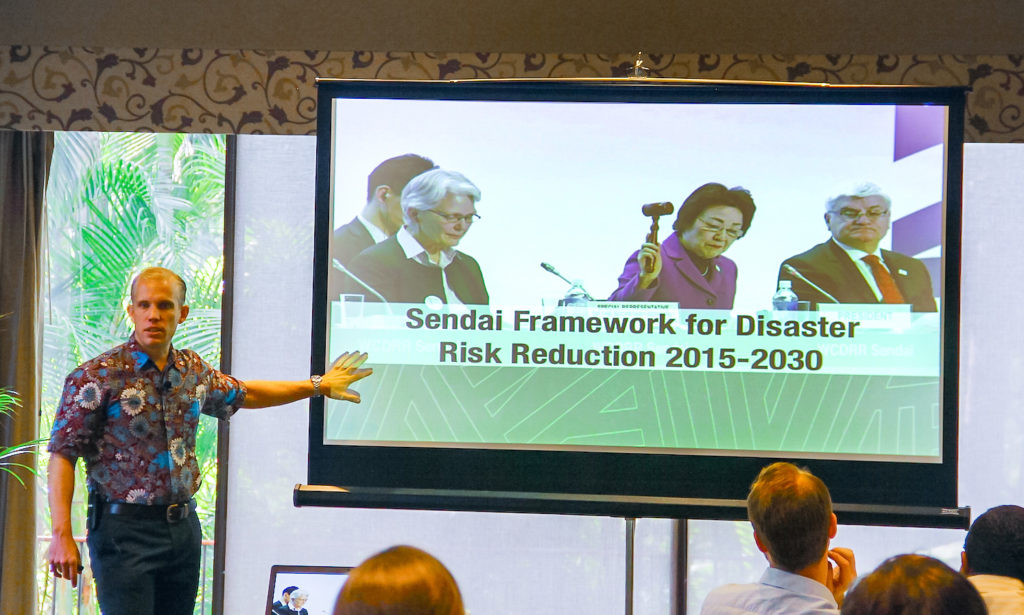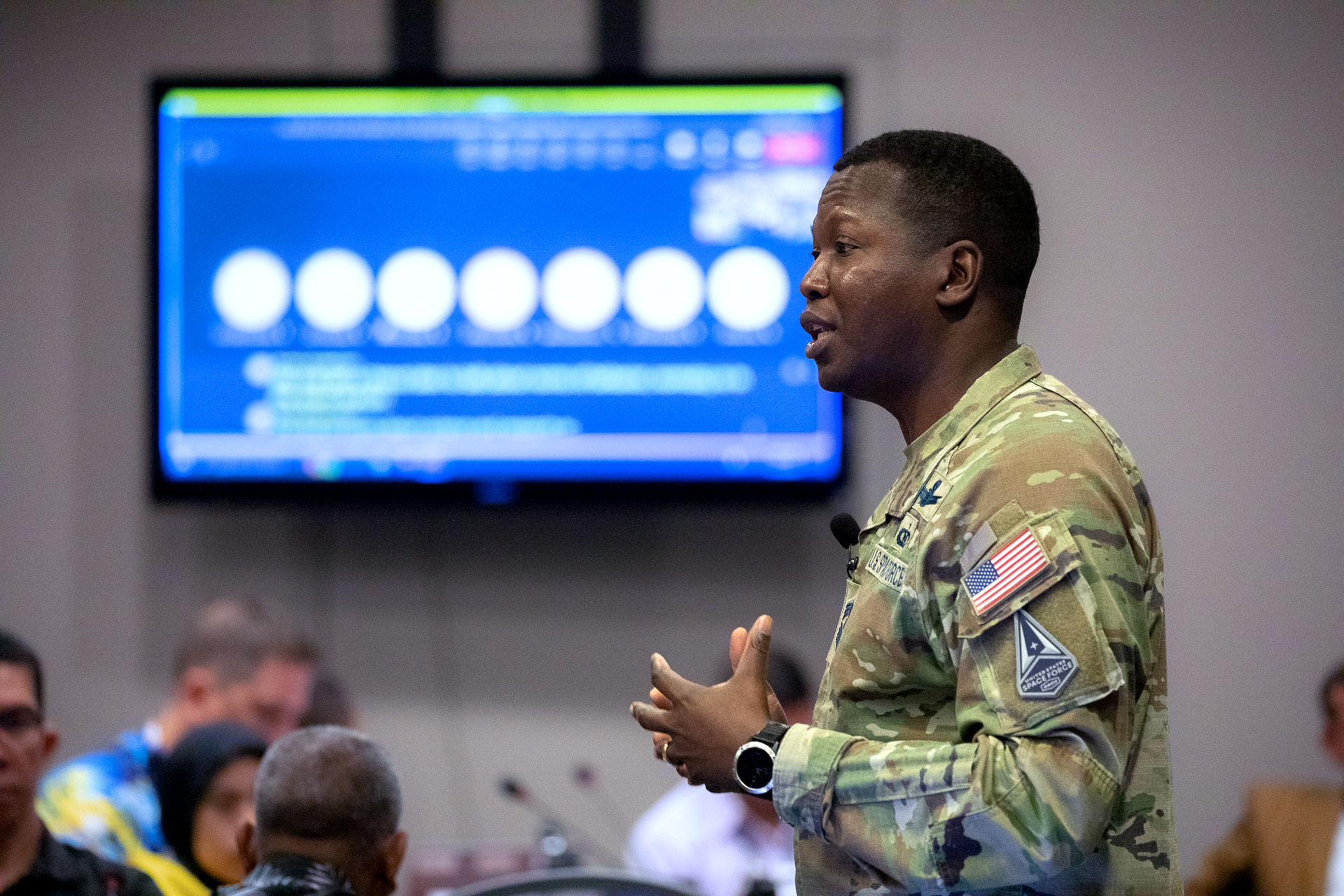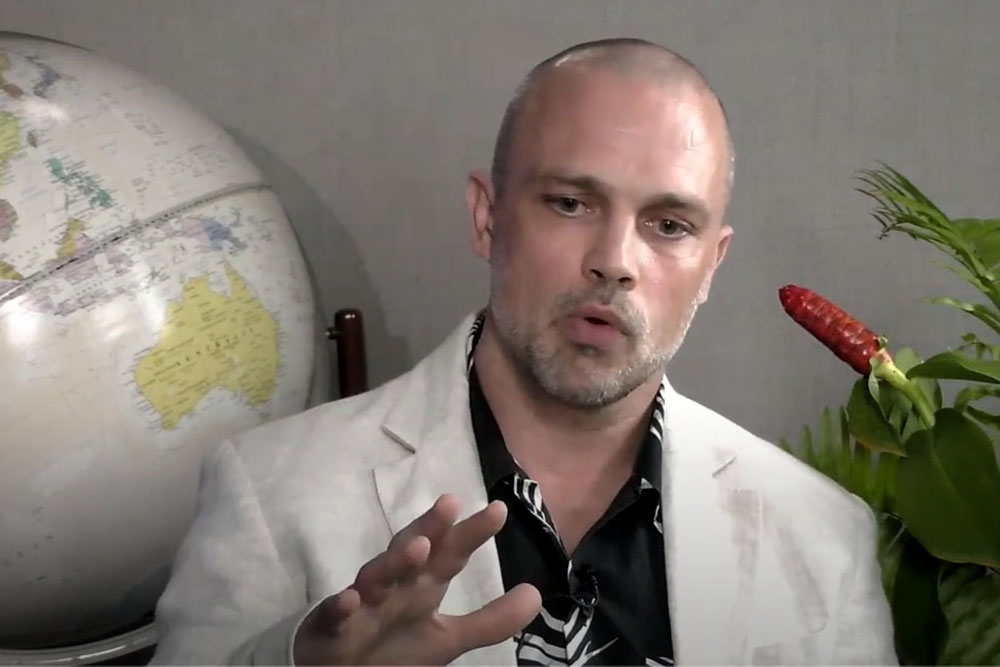The Daniel K. Inouye Asia-Pacific Center for Security Studies’ (DKI APCSS) Associate Professor Benjamin Ryan recently had the opportunity of facilitating a session on noncommunicable disease (NCD) control and prevention in humanitarian crises at the annual Health Emergencies in Large Populations (HELP) course held in Honolulu, Hawaii, from July 30 to August 10, 2018.
This course was delivered by the Center for Excellence in Disaster Management and Humanitarian Assistance (CFE-DM) in collaboration with the International Committee of the Red Cross (ICRC), World Health Organization (WHO), and University of Hawaii. There were participants from the Indo-Pacific and North America with representatives from Ministries of Health, Ministries of Defense, National Disaster Management Organizations, the Red Cross/Red Crescent Movement, UN agencies such as the WHO and UNICEF, national/international NGOs, and academic institutions.
Ryan’s session included discussion about the need to expand the focus of humanitarian assistance and disaster relief (HADR) activities beyond immediate trauma and communicable diseases to include NCD management. NCDs generate the bulk of ill health, disability and premature death across the globe with almost three quarters of all NCD related mortality occurs in low and middle income countries. People at greatest risk are those with cancer, cardiovascular conditions, diabetes, renal diseases and respiratory diseases. In addition, the Sendai Framework for Disaster Risk Reduction 2015-2030 has recognized the threat disasters post to people with these conditions.
Participants were provided with a comprehensive understanding of this challenge and had the opportunity to explore strategies for reducing indirect mortality and morbidity from NCDs before, during and after a disaster and in complex emergencies such as conflict zones.











Leave A Comment